State of the South Atlantic Ecosystems kickoff workshop
Heath Kelsey · | Science Communication |Jane Hawkey, Caroline Donovan, and I had a fantastic visit to Raleigh, NC, where we are working with the South Atlantic Landscape Conservation Cooperative (SALCC) develop a State of the South Atlantic Ecosystems Assessment. Over the last two years or so, the SALCC has been developing a set of indicators that reflect on conservation priorities for 11 ecosystems in the US South Atlantic region. The ecosystems span the ocean to piedmont, and include marine, beach and dune, maritime forest, estuarine, tidal and non-tidal freshwater marsh, freshwater aquatic, forested wetland, pine woodland savanna and prairie, upland hardwood forest, as well as landscapes and waterscapes.
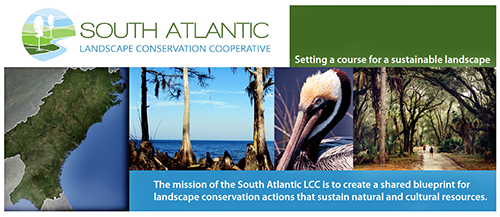
The indicators to evaluate conservation priorities are based on ecosystem condition - our collective challenge is to design a framework for an overall ecosystem condition assessment based on those metrics. The challenge for the SALCC now is to determine thresholds for each metric, which is no small task for the approximately 30 indicators across 11 ecosystems. Despite the size of the task, SALCC is intent on moving quickly to complete it.

Throughout this process, I've admired the "can do" attitude of the staff and leadership of the SALCC. There is a willingness to roll up sleeves and get to work on the interim thresholds, with the understanding that they can be improved and finalized as work progresses. The old "don't let the perfect be the enemy of the good" is on full display. This focus on progress has enabled the SALCC to make impressive progress in a relatively short time. In our workshop, we outlined a pretty tough set of tasks to establish ecosystem condition thresholds for the current indicators. No one on the staff flinched, and promised to have this done in short order, mostly completed by the end of the year.
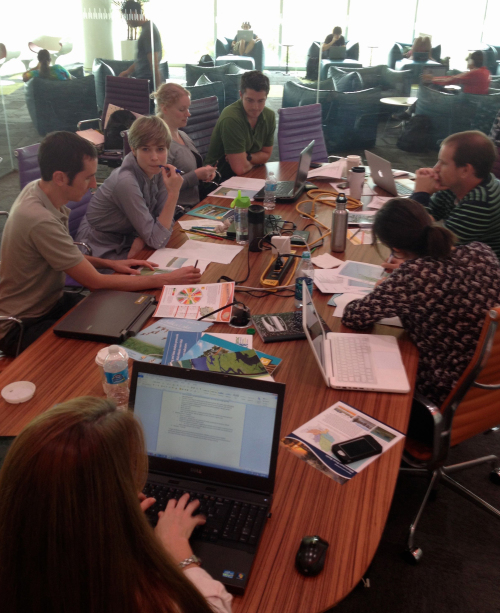
This kind of "get it done" attitude is a theme that we try to live by with our work as well. There is always room to improve a project or product, but sometimes you need a good milestone to build from. Plant a flag to document what you’ve accomplished and build from there.
Of course we learned a lot about the ecosystems in the southeastern US, which is a pleasure for us and happens wherever we go. An added bonus for us this time was the workshop location at the James B. Hunt Jr. Library, on the centennial campus of NC State University in Raleigh. Our meeting space was a glassed room called “The Fishbowl”, which has a wireless, large format, touch screen monitor, and adjustable colored lighting.
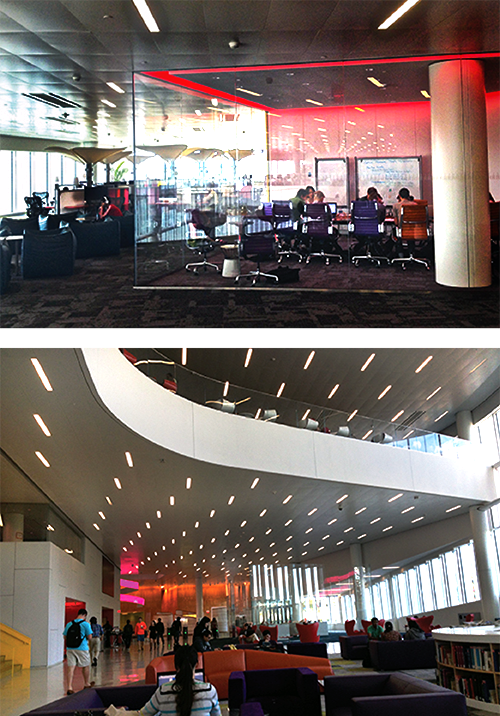
The rest of the library is even more impressive, with robotic stacks, hundreds of collaborative working spaces with Apple or PC workstations, 3D printing, sound rooms, game developing spaces, and innovative communication displays. We enjoyed a great tour of the library from Rua Mordecai - our host, and Science Coordinator for the SALCC.
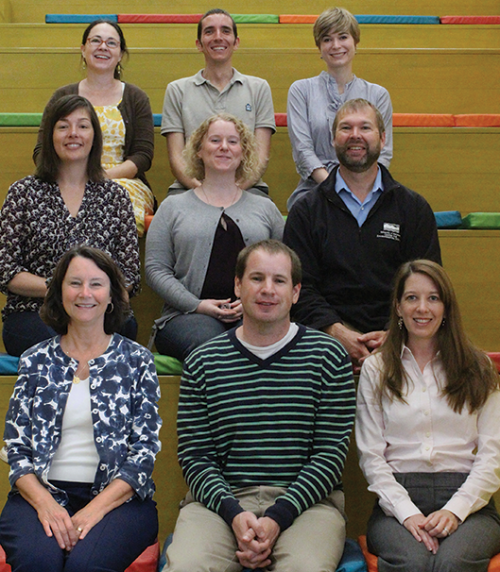
About the author
Heath Kelsey
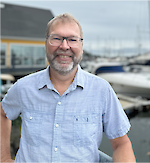
Heath Kelsey has been with IAN since 2009, as a Science Integrator, Program Manager, and as Director since 2019. His work focuses on helping communities become more engaged in socio-environmental decision making. He has over 15-years of experience in stakeholder engagement, environmental and public health assessment, indicator development, and science communication. He has led numerous ecosystem health and socio-environmental health report card projects globally, in Australia, India, the South Pacific, Africa, and throughout the US. Dr. Kelsey received his MSPH (2000) and PhD (2006) from The University of South Carolina Arnold School of Public Health. He is a graduate of St Mary’s College of Maryland (1988), and was a Peace Corps Volunteer in Papua New Guinea from 1995-1998.